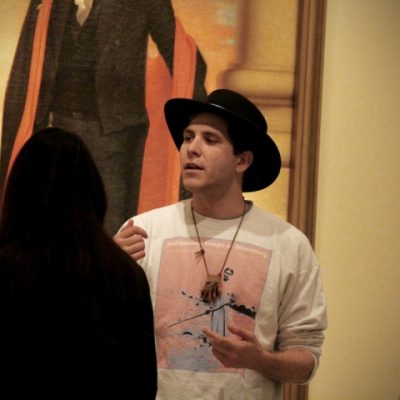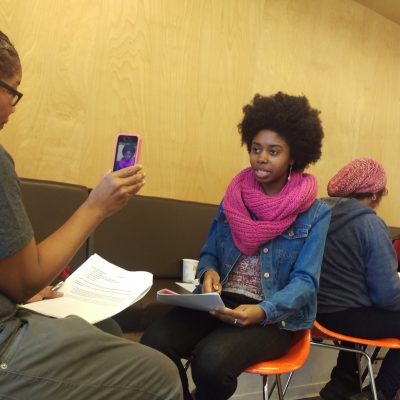Article
Before developing this project, Senior Fellow Emilie Etienne had travelled to Peru three times to volunteer with a local association called Yaycuy Camuy. As a volunteer, Emilie formed deep friendships and came into contact with many inspirational people, strengthening her commitment to the country and its people. In France, Emilie spent a year and a half learning Quechua, one of the indigenous Peruvian languages.

During her time in Peru, Emilie was shocked to witness the strong racism that exists in the country, which is mostly directed towards Peruvians from the countryside. She describes the discrimination as being based on gender, ethnicity and socio-economic status. Many migrants come from the countryside of Peru – including the mountains and jungles – to the capital city of Lima in order to pursue a better life. But once in the city, they face discrimination based on their ethnicity and their poverty.
“Once you are able to persuade them to better understand you and your goals, you will be able to gain their support for your project.”
Along with her Peruvian friend Angelit Guzman Chavez, Emilie created Kayhinam Llaqtay (This is my land), a project that empowers young people from a Peruvian slum.
Emilie was particularly drawn to the discrimination suffered by teenagers from Lima’s slums, whose limited opportunities hampered their will to succeed.
Through its partnership with Yaycuy Camuy volunteers, World Vision Peru and Rotaract Peru, Kayhinam Llaqtay organized more than 20 weekly workshops for the teenagers, tackling themes such as community organization, gender issues, the environment, racism and Peruvian history.
Additionally, the project helped the teenagers create a blog, which they used to discuss what they had learned at the workshops. Through the creation of theater plays and choreographies, the teenagers were able to share what they had learned with the rest of their community. Emilie’s project helped the teenagers organize for foreigners and other Peruvians to visit their community. And in an effort to encourage a cross-cultural exchange, the project organized a short trip to the mountains, so that the urban teenagers could meet with rural teenagers and the two groups could learn more about one another’s culture. All of these experiences helped empower the teenagers living in the slum, motivating them to believe in themselves and to pursue their dreams.
Emilie admits that the most challenging aspect of developing this project was the fundraising, especially gaining the trust of potential donors. She recommends fundraising first with friends, family and organizations that already trust you, and to then begin contacting other individuals and groups. “Once you are able to persuade them to better understand you and your goals, you will be able to gain their support for your project,” she says. She stresses that creating a project often seems easy at the beginning, but that there will likely be many unforeseen obstacles. It is crucial that you not give up.
As the saying goes,
“If the door is closed, go through a window.”








